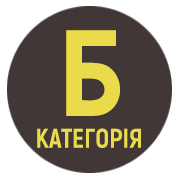FEATURES OF THE EXPRESSION OF COMPARISON IN GERMAN PHRASEOLOGY
DOI:
https://doi.org/10.32782/folium/2024.4.36Keywords:
phraseological unit, comparison, evaluation, comparative phraseological unitAbstract
The article examines the peculiarities of the expression of comparison in the structure of German phraseological units. In the course of the research, it was established that phraseological units are characterized by great semantic, structural and functional diversity. Studies of the comparison component in the structure of evaluative phraseology and features of evaluation in general are conducted in linguistics mainly at the lexical level. That is why evaluation studies at the level of phraseology are particularly relevant. The complexity of the linguistic nature of comparisons led to the appearance of different, often contradictory opinions about its structure. The question of determining the linguistic status of the category of comparison, clarifying its syntactic nature in the grammatical concepts and terms used by tradition is relevant for today. With the help of language, a person not only expresses thoughts, but also conveys his feelings and will. Therefore, in addition to the main objectivelogical meaning, the word can also have an additional emotional meaning. At the same time, it is worth noting that the emotional meaning is closely related to the subject-evaluative characteristic of the word.
References
Алефіренко М.Ф. Теоретичні питання фразеології : монографія. Харків : Вища школа, 1987. 135 с.
Мойсеєнко Л.А. Теоретико-методологічні засади досліджень фразеологічних одиниць. Міжнародна школа україністики НАНУ. Київ. 2013. С. 159–162.
Овсієнко Л.О. Пейоративний аспект семантики фразеологічних одиниць сучасної німецької мови. Наукові записки Національного університету “Острозька академія”. Серія «Філологічна». Вип 51. 2015. С. 275–277.
Овсієнко Л.О. Фразеологізми з оцінним компонентом значення у німецькомовному художньому тексті. Українські студії в європейському контексті: Зб. наук. пр. 2021. № 3. С. 259–263.











